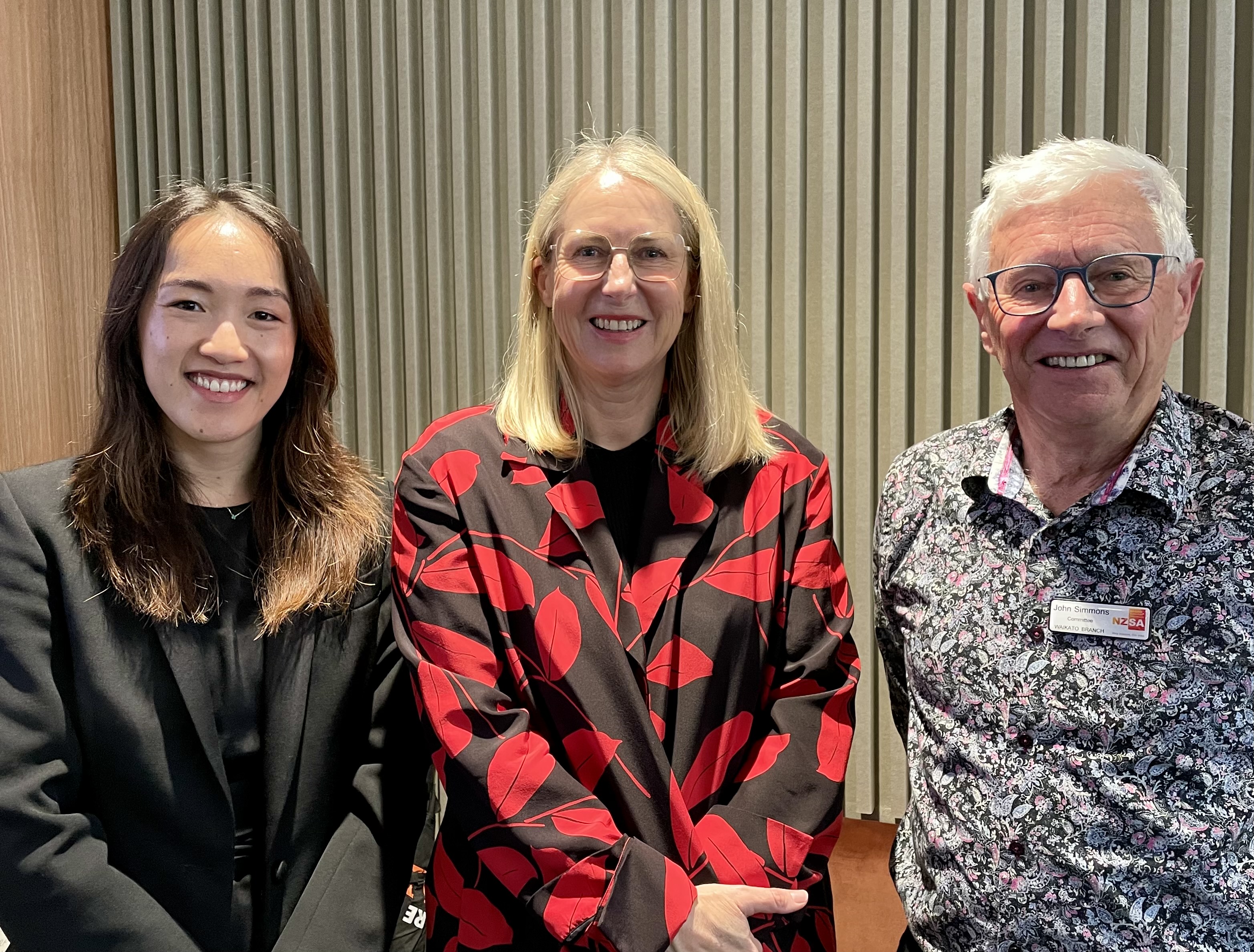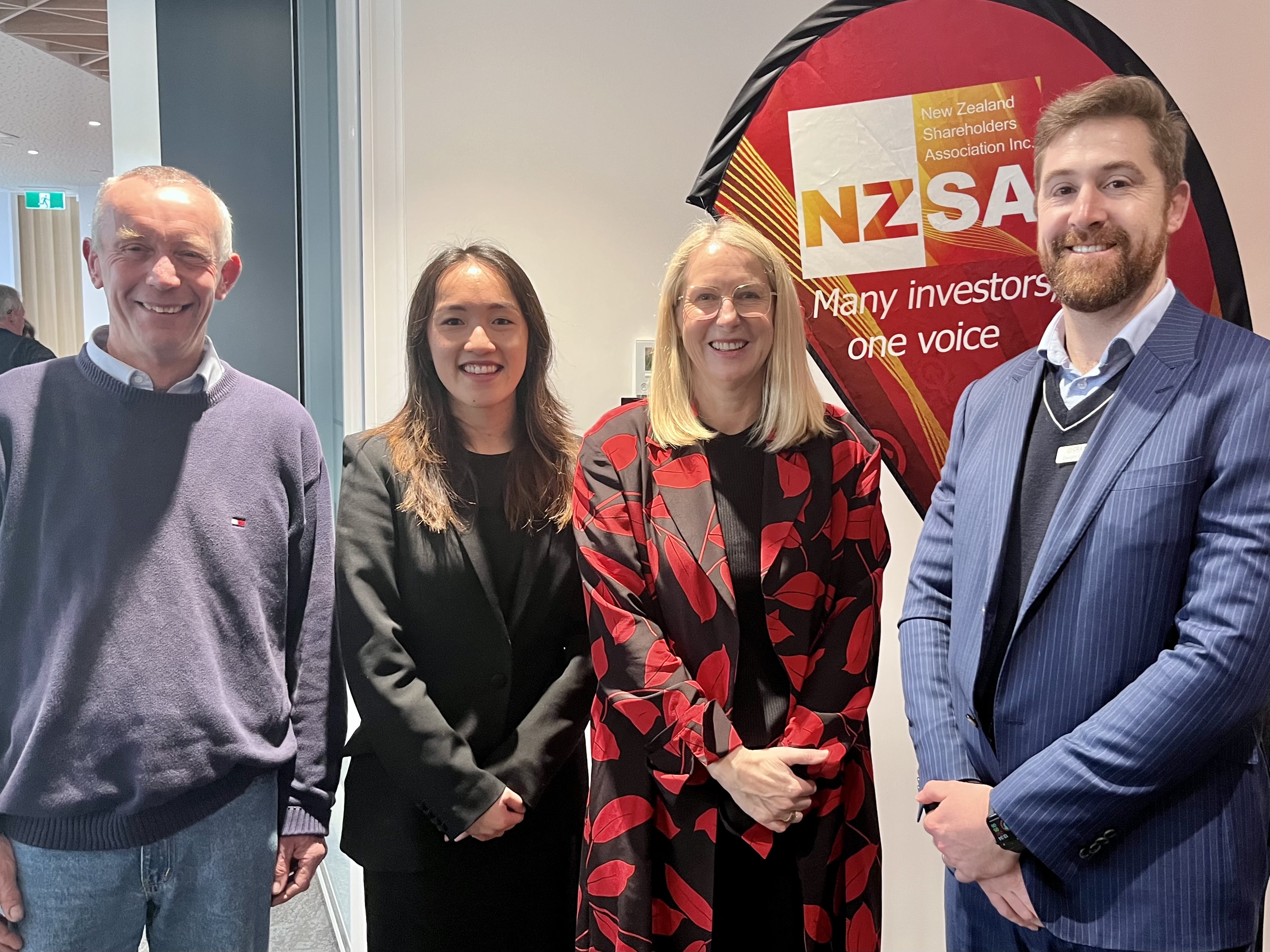22nd June 2023
On 22 June, our guest speaker was Pip Greenwood , a highly regarded board chair and director. Pip has been Chair of Westpac New Zealand since October 2021. Pip is also Chair of A2 Milk, a director of Fisher and Paykel Healthcare, and a Trustee of the Auckland Writers’ Festival.
She has also been the recipient of numerous industry awards. These include New Zealand “Dealmaker of the Year” at the Australasian Law Awards 2018, an accolade she has won five times. She has twice been recognised as a finalist at the Women of Influence Awards. From there she has progressed from being an advisor to boards to being a director.
A company’s strategy has to be supported by the right team. Though you are the boss of the CEO it has to be a support role but also being candid about the challenges and the opportunities. A system must be worked out about the decisions that each can make. There must be an honest and open flow of information between the CEO and the Chair. Governance is led by the chair and they have to look at the important stuff.
The Chair has to retain objectivity. He/she has to take the board with them in a form of collective responsibility. Further, the Chair should not talk too much at board meetings and can use the reports from the committees to help guide the board. Directors should not get involved with staff teams. The Audit and Risk Committee does work with management but still does its own report to the board.
When recruiting a CEO, you are looking at a particular skill set. Pip has led four CEO searches in the last five years, as well as searches for 10 directors over the same period. She made the comment that internal succession is often better than an external candidate – which means that the board has to have a good knowledge of the management team. Internal succession also means that person is already aware of the management strategy of a company. An outside person may take 12-18 months to learn the appropriate culture of an organisation.
The purpose of being a director is to protect and expand. Smaller boards are more dynamic and six to eight directors is optimal. Pip then discussed the skill sets for a director. Note that there is now a tendency to make directors personally liable. The skill set headings she used were strategic planning, finance management, governance, legal compliance, risk management, industry knowledge, stakeholder management, leadership skills, communication skills, diversity and inclusion, and technology knowledge. The skill set of directors should be reviewed annually with forward planning to recruit new directors. This would be a dynamic process; plan ahead, talk with the recruiters.
The different skills avoid a group think situation that arise when everyone comes from the same direction. There should always be a director with skills and an interest in mergers and acquisitions. These days, they have to look at cyber security and the firm’s defences.
There was a question about the proposed Banking Review. Westpac welcomes this as it would prove that they are doing the best thing for their customers. Their actions are always being reviewed by the Reserve Bank.
But a later question was about the challenges of having a review in New Zealand when the local board is a ‘puppet’ to the Australian company. But there are different regulations in both countries and appropriate levels of board separation. They still keep the lines of communication open and they do have strategy days together.
Though comment is often made on the Big Four, there are actually quite a lot of banks in New Zealand. The returns are not excessive. Westpac is the smallest of the Big Four but it still has 5,500 staff. Banks must always prove their value to their clients but there can be too much regulation.
To conclude, this was one of those talks that kept everyone interested throughout, as witnessed by the 16 questions after the main part of Pip’s presentation. Pip opened up our eyes to the role and responsibilities and process of being a director. It was a talk that was as useful as it was fascinating.
Cliff Thomas



